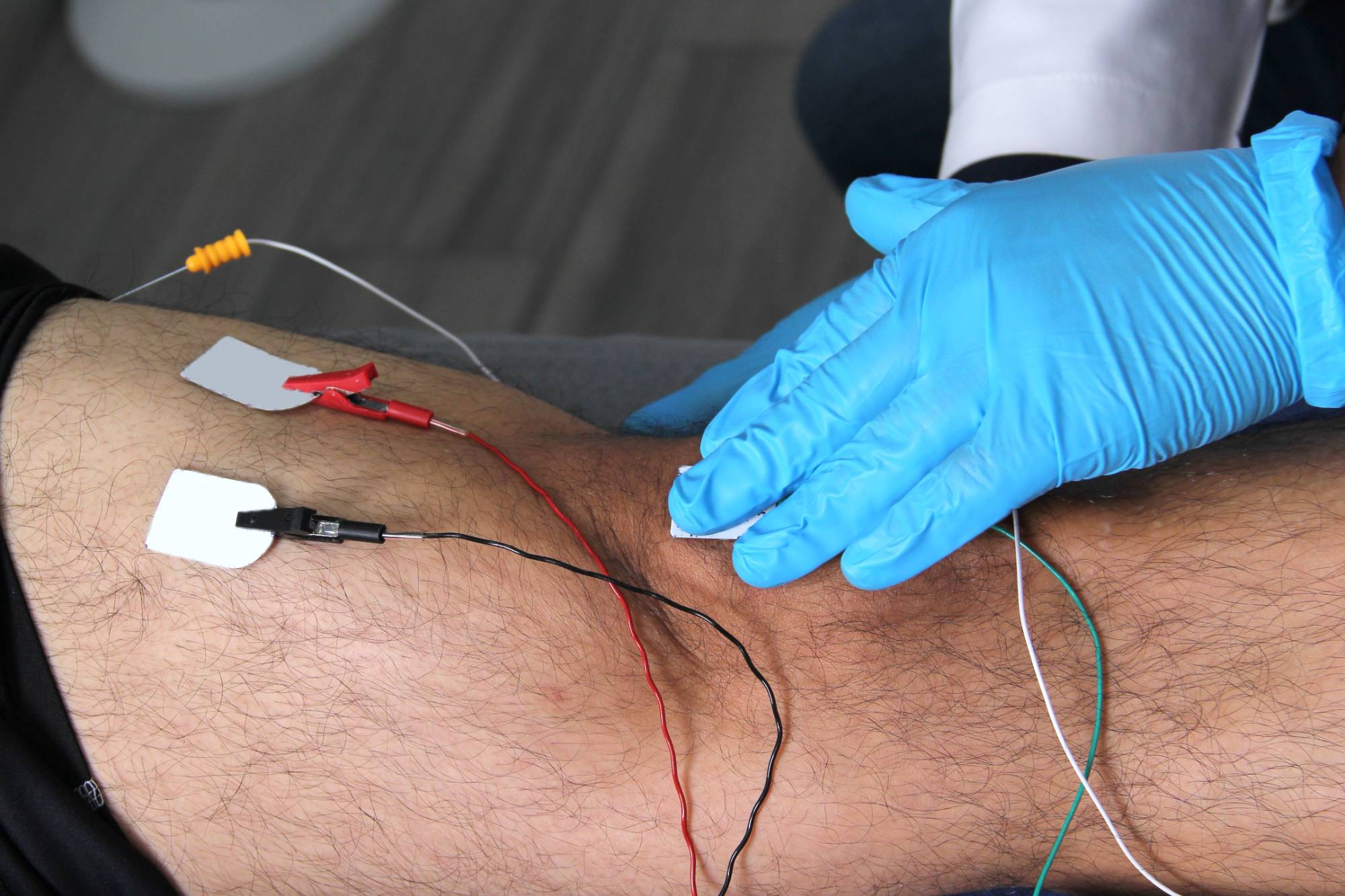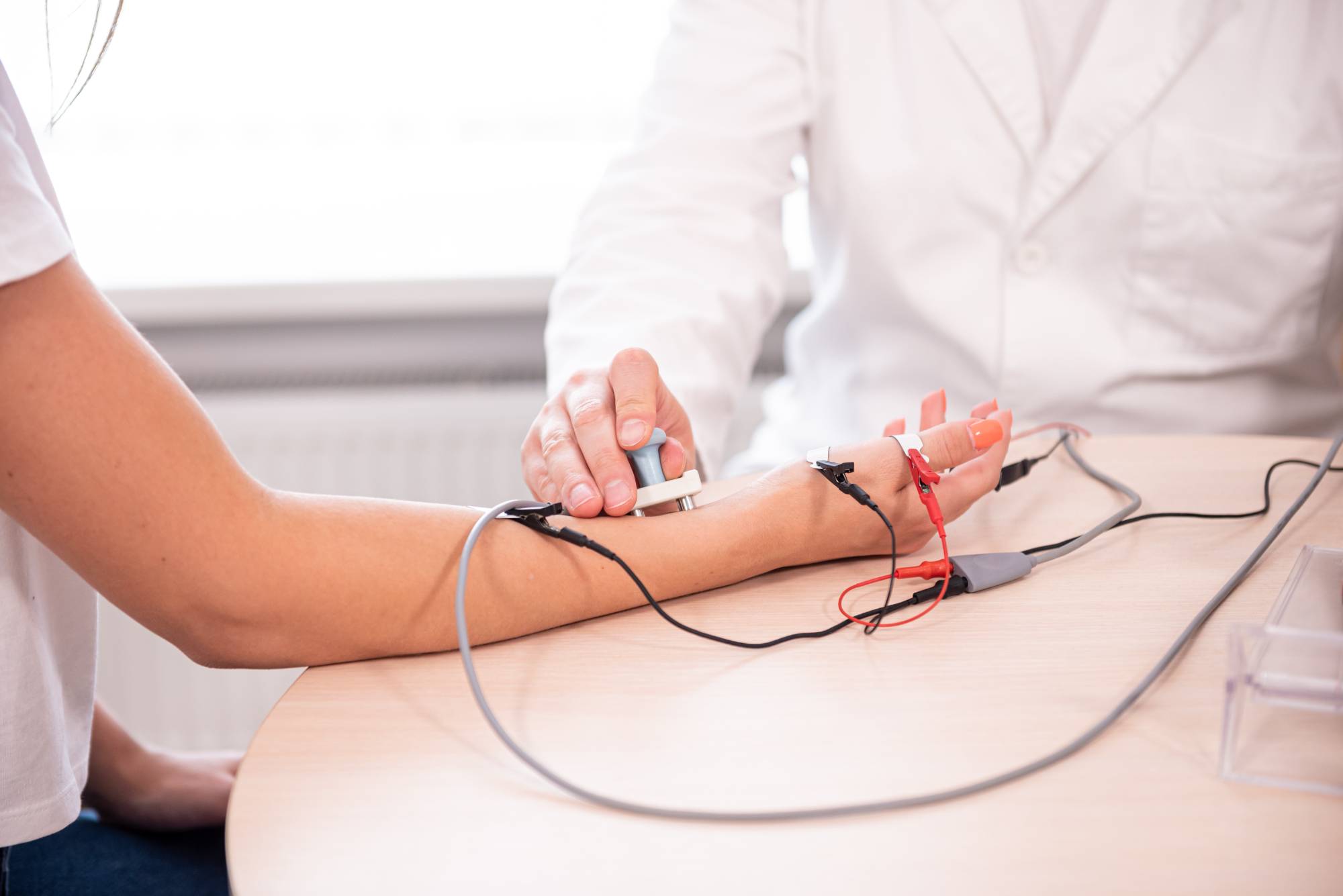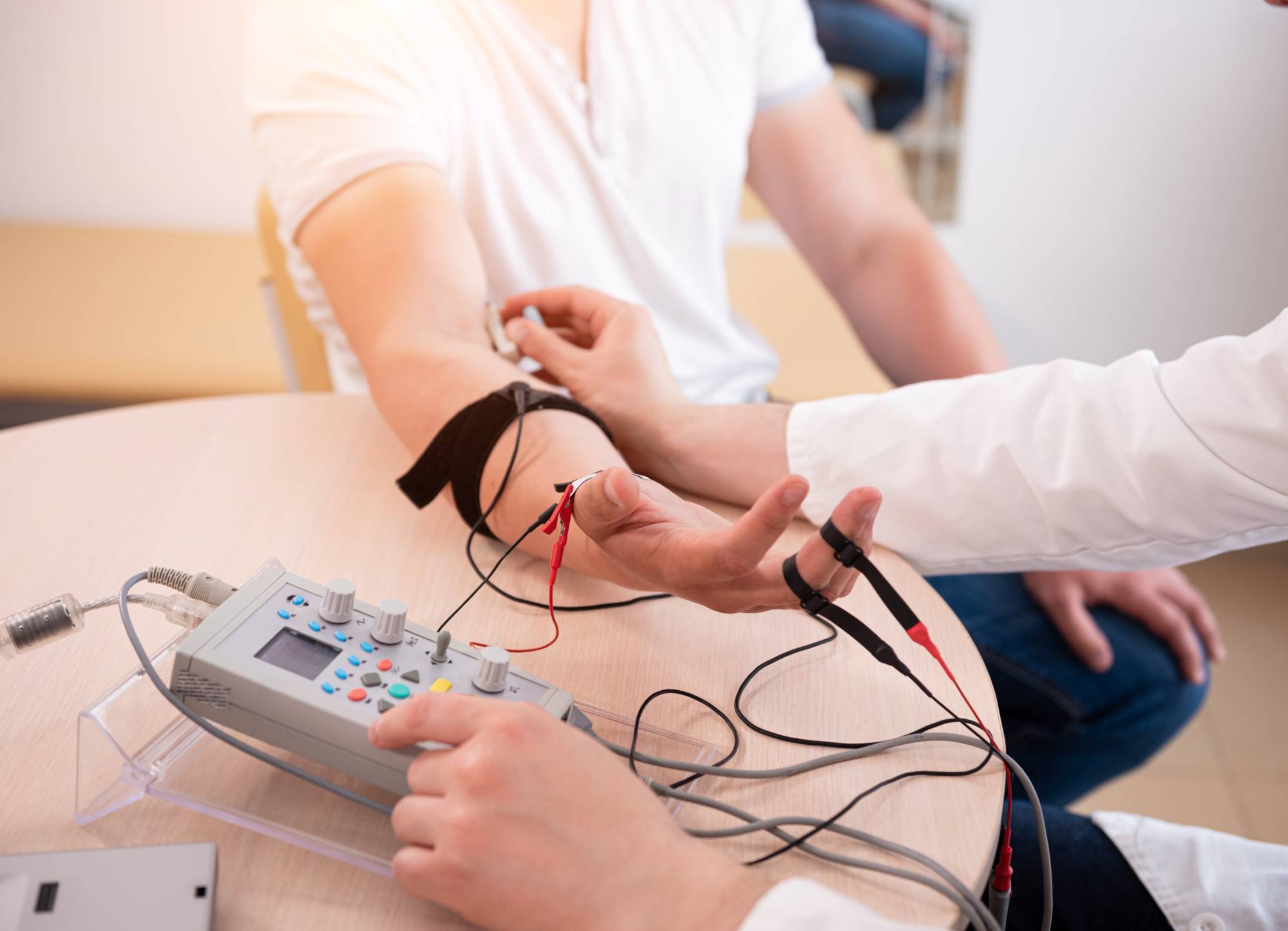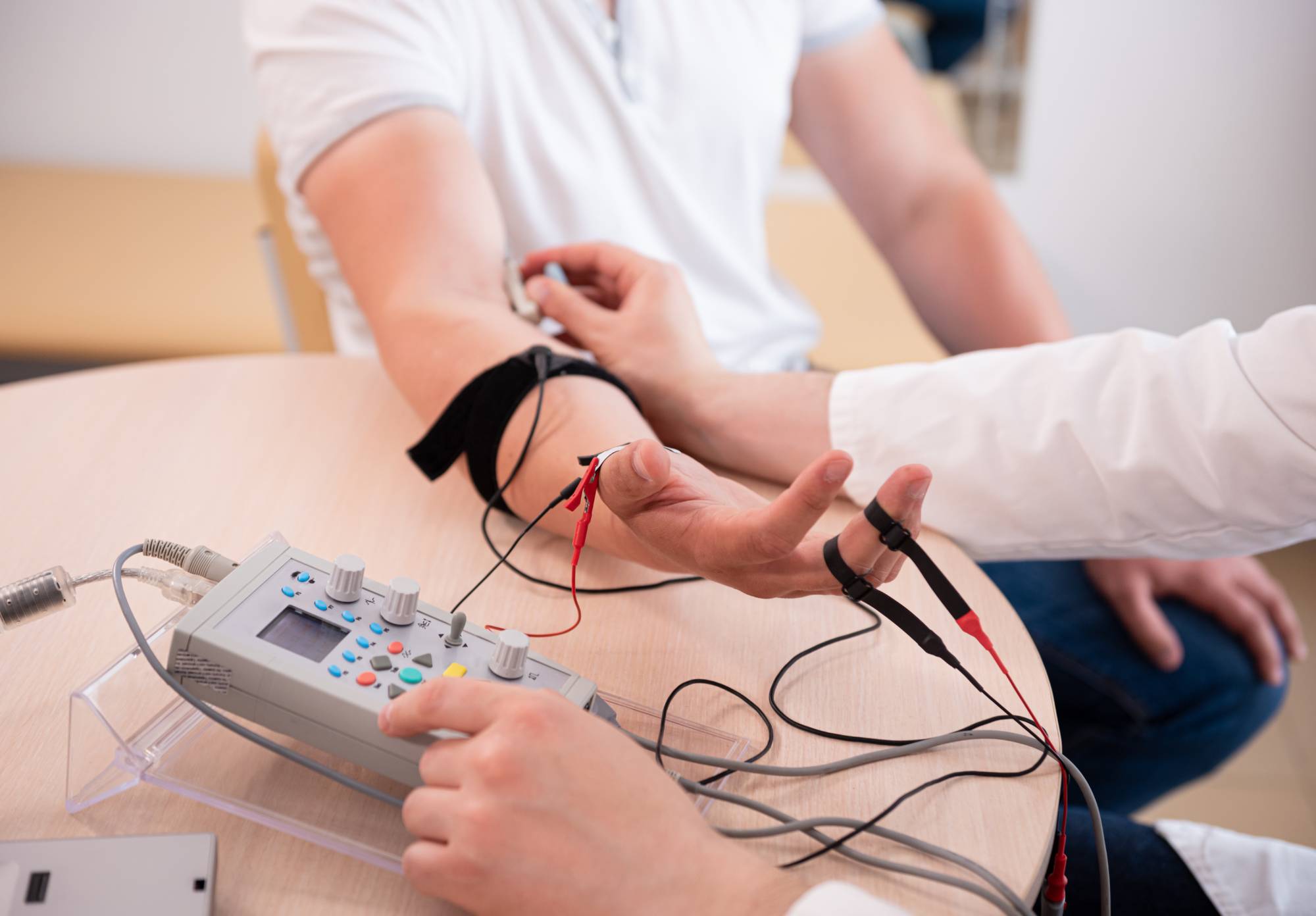Advanced electromyography testing that pinpoints exactly what’s causing your numbness, tingling, or muscle weakness.

Reviews

You’ve been dealing with unexplained symptoms long enough. That tingling in your hands, the weakness in your legs, or the numbness that comes and goes – you need real answers, not more guessing.
EMG testing gives you those answers. This diagnostic procedure measures the electrical activity in your muscles and nerves, revealing exactly where problems exist and what’s causing your symptoms.
When you know what you’re dealing with, you can move forward with the right treatment. No more wondering if it’s serious. No more trying treatments that don’t work because they’re not targeting the real problem. Just clear, accurate information that leads to effective care.
NY Spine Medicine has been providing comprehensive spine and pain management care to patients throughout The Crossings and surrounding Florida communities. We specialize in advanced diagnostic testing, including electromyography and nerve conduction studies.
We understand that getting tested can feel overwhelming. That’s why we focus on making the process as comfortable and straightforward as possible, while ensuring you get the most accurate results.
Our commitment to patient care means you’ll receive clear explanations of your test results and understand exactly what they mean for your treatment options.

Your EMG testing appointment typically takes 30-60 minutes. You’ll start with a brief consultation where our specialist reviews your symptoms and medical history.
During the nerve conduction study portion, small electrodes are placed on your skin. Mild electrical pulses measure how well your nerves transmit signals. This part feels like a small shock – brief and tolerable for most patients.
The electromyography portion involves inserting a thin needle electrode into specific muscles. This measures electrical activity when your muscles are at rest and when you contract them. While you might feel some discomfort, most patients find it much more manageable than they expected.
You’ll receive your results immediately after testing. Our specialist will explain what the findings mean and discuss your next steps for treatment.

Ready to get started?
Your EMG testing includes both electromyography and nerve conduction studies in one comprehensive appointment. This combination provides a complete picture of your muscle and nerve function.
The testing can diagnose conditions like carpal tunnel syndrome, sciatica, diabetic neuropathy, muscle disorders, and various forms of nerve damage. You’ll also receive a detailed report that your referring physician can use to develop your treatment plan.
Many patients in The Crossings choose this testing because it’s covered by most insurance plans and provides definitive answers about symptoms that other tests might miss. The results help determine whether your symptoms are caused by nerve damage, muscle problems, or other underlying conditions.

New York:
Florida:
Support